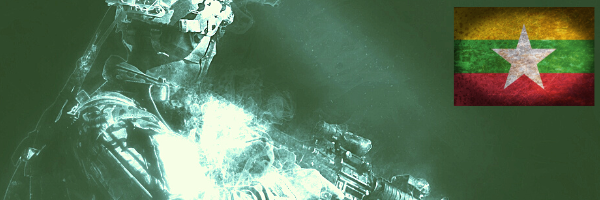Myanmar: IBAHRI condemns junta’s execution of four men following unfair trials
Wednesday 27 July 2022

The International Bar Association’s Human Rights Institute (IBAHRI) condemns the junta’s execution of four men in Myanmar after being tried, convicted and sentenced to death by closed-door military tribunals. Myanmar state media reported the deaths on 25 July 2022.
The four men – former opposition lawmaker Phyo Zeya Thaw, pro-democracy activist Kyaw Min Yu, (known as ‘Ko Jimmy’), Hla Myo Aung and Aung Thura Zaw – were all connected to the pro-democracy movement in Myanmar. They had been charged with various crimes under the Counter-Terrorism Law and the Penal Code and were sentenced to death despite local sources disputing the allegations and contesting their guilt.
According to reports, the junta did not notify the men’s families that they were to be executed. Reports state the families learnt of the executions through media statements and that they have not received the bodies of their loved ones.
IBAHRI Co-Chair, and Immediate Past Secretary General of the Swedish Bar Association, Anne Ramberg Dr Jur hc, stated: ‘We reiterate that the military courts’ sham trials disregard basic fair trial standards and due process, rendering the executions an arbitrary deprivation of life in violation of international human rights law, standards and norms. The IBAHRI opposes the death penalty in all circumstances. We are appalled by this cruel, irreversible and seemingly politically motivated development in Myanmar, which has a chilling effect on political opponents and pro-democracy protestors.’
The last previous execution known to have taken place in Myanmar was in 1988. Since the coup in February 2021, military tribunals have reportedly sentenced 117 people to death under martial law, including 41 in absentia. Death sentences can be imposed for 23 crimes under martial law, most of which are not considered capital crimes in civilian courts. The sentences follow summary proceedings behind closed doors, during which defendants do not have access to legal representation or the right of appeal. Defendants have just 15 days from the date of their conviction to apply to the junta Chairman of the State Administration Council for a reversal of the decision. Such applications can reportedly only be filed through prison officials, not lawyers.
The 1984 United Nations Economic and Social Council Safeguards Guaranteeing Protection of the Rights of Those Facing the Death Penalty require that:
- ‘Capital punishment may be imposed only when the guilt of the person charged is based upon clear and convincing evidence leaving no room for an alternative explanation of the facts.’
- ‘Capital punishment may only be carried out pursuant to a final judgement rendered by a competent court after legal process which gives all possible safeguards to ensure a fair trial, at least equal to those contained in Article 14 of the International Covenant on Civil and Political Rights, including the right of anyone suspected of or charged with a crime for which capital punishment may be imposed to adequate legal assistance at all stages of the proceedings.’
- ‘Anyone sentenced to death shall have the right to appeal to a court of higher jurisdiction, and steps should be taken to ensure that such appeals shall become mandatory.’
IBAHRI Co-Chair Mark Stephens CBE commented: ‘Such brazen disregard for human life and dignity shocks our collective humanity. We call on the international community to hold the junta to account and to demand action to prevent further atrocities, including by introducing an immediate moratorium on the use of the death penalty with a view to abolition, commuting all death sentences, releasing those arbitrarily detained and ceasing trials of civilians under military jurisdiction.’
ENDS
